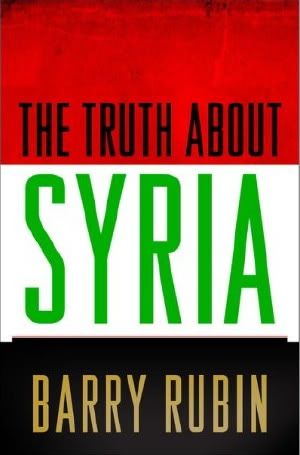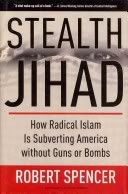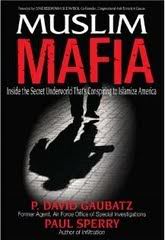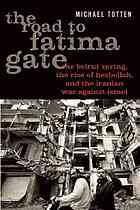by Temple Watch ~ November 7th, 2009
Arthur Balfour declared that “His Majesty’s government views with favor the establishment in Palestine of a national home for the Jewish people.” Winston Churchill’s White Paper stated that [Jewish immigration to Palestine] “cannot be so great in volume as to exceed whatever may be the economic capacity of the country at the time to absorb new arrivals.” From that hedge, it has been one long retreat from Zionism to the Arab-Israeli conflict of today.
Source: Moshe Arens / The Jerusalem Post / November 3, 2009
Ninety-two years ago today the British foreign secretary, Arthur James Balfour, sent the now famous letter, known as the Balfour Declaration, to Baron Rothschild to be transmitted to the Zionist Federation of Great Britain and Ireland.
Looking at the State of Israel today one might say it all started with the Balfour Declaration. Some would say, it all started with Theodore Herzl and the first Zionist Congress in Basel in 1897, 20 years earlier. And students of Zionist history would say it all started even earlier with the Lovers of Zion, the Hovevei Zion, and the first wave of modern Jewish immigration to Palestine from Eastern Europe, Ha’aliya Harishona. But as far as international recognition of Zionist aspirations, and the political movement that set in motion the Zionist enterprise that became the Jewish state in Palestine, the State of Israel, it all started with the Balfour Declaration.
In World War I efforts had been made to have Jews, as Jews, participate in the fighting against the Turks. The Zion Mule Corps, commanded by John Patterson and his deputy Yosef Trumpeldor, had participated in the fighting at Gallipoli; the NILI spy network in Palestine, led by Aharon Aaronson, had been providing intelligence information to the British; and the Jewish Legion organized by Vladimir Jabotinsky, that was to participate in the fighting in Palestine, was formed in August 1917. All that, and the political spadework done by Chaim Weizmann and Nahum Sokolow in London had laid the groundwork for the declaration. And there was the sympathy for the return of the Jewish people to their ancient homeland in some circles in Britain.
But in the final analysis, as was to be expected in a nation at war, it was the immediate interests of Britain, at the moment, that tipped the scales in favor of this momentous declaration of sympathy with the Zionist cause. The support of American Jewry, thought to have considerable influence, for the war effort was expected to be strengthened by the declaration. And the misperception that the many Jews in leadership positions among the communists in Russia, at the time in the throes of the communist revolution and Russia’s continued role in the war uncertain, might be swayed by the declaration to keep Russia in the war, was a consideration in the issuance of the Balfour Declaration by the British government.
THE DECLARATION, a powerful statement of support for Zionist aspirations, by what was at the time one of the world’s great powers intent on gaining control of much of the Middle East after the war, contained sufficient ambiguities to leave succeeding British governments plenty of room for maneuver to satisfy the exigencies on the ground as seen by British policymakers as time went on. The original draft of the declaration which contained the phrase “Palestine should be reconstituted as the National Home of the Jewish people” was amended in the final text to read “His Majesty’s government view with favor the establishment in Palestine of a national home for the Jewish people.”
“In Palestine” could be interpreted as meaning that not all of Palestine should become the national home of the Jewish people. Additionally, the boundaries of Palestine not being defined at the time, left ambiguous the eventual size of the area to be allocated as a national home of the Jewish people. And not least - for Zionism’s goal was the establishment of a Jewish state in Palestine (Herzl’s manifesto was entitled Der Judenstadt) - the Balfour Declaration had substituted for Jewish state the more ill-defined “national home for the Jewish people.” These ambiguities came to haunt the Zionist movement as British governments exploited them over the years.
The Arab population in Palestine did not welcome the idea of largescale Jewish immigration and the application of the Balfour Declaration to the area. They quickly learned that rioting was an effective tool in getting the government in London to accede to their demands and backtrack on the Balfour Declaration. In April 1920 riots were organized against the Jews in Jerusalem. The following year there were Arab riots against the Jews in Jaffa. The immediate British response was a temporary suspension of Jewish immigration. Proposals by Jabotinsky that Jewish battalions similar to the Jewish Legion be enlisted so as to quell the riots and establish order were rejected, while the British forces stationed in Palestine were completely ineffective in overcoming Arab rioters.
The attitude of the British military in Palestine was generally anti-Zionist and favored the Arabs. In a circular distributed to the British officers serving in Palestine, Gen. Walter Congreve, commanding Egyptian Expeditionary Forces from Cairo, wrote “[The army's] sympathies are obviously with the Arabs… who have been the victims of the unjust policy forced upon them by the British government.”
The Zionist delegation to the Paris peace conference in 1919 had submitted a map of the Jewish national home which included territory east of the Jordan River, as well as the Golan Heights in the north. But no sooner had a British military administration established itself in Palestine than a process of whittling away at the territory to which the Balfour Declaration was intended to apply was begun.
Within a month of assuming the post of colonial secretary in February 1921, Winston Churchill was on his way to Cairo to chair a conference to frame British policy in the Middle East. Paying little attention to the map presented by the Zionist delegation at the Paris peace conference, and the decisions of the Allied conference in San Remo in 1920 which decided that the area west and east of the Jordan River were to be a single territory to which the Balfour Declaration would be applied by the mandatory power, the Cairo conference concluded that Abdullah, who had entered the area east of the Jordan from Arabia with some of his troops, remain there as the ruler of Transjordan within the framework of the British mandate for Palestine.
In making the offer to Abdullah at a meeting in Jerusalem in May, Churchill agreed that the provisions of the Balfour Declaration would not extend east of the Jordan River. The offer was accepted. It was the beginning of Arab rule and the exclusion of Jewish settlers from over 78 percent of what was going to be the Palestine Mandate granted to Britain by the League of Nations in June 1922. At about the same time French-British negotiations delineating the northern border of Palestine were concluded leaving the Golan Heights in French mandated Syria. In addition, under the pressure of the Arab riots in Palestine the British government began backtracking on the Balfour Declaration. The Churchill White Paper issued in June 1922 ascribed the Arab riots to “exaggerated interpretations of the meaning of the Declaration.” The White Paper, announcing the government’s policy, went on: “Unauthorized statements have been made to the effect that the purpose in view is to create a wholly Jewish Palestine. Phrases have been used such as that Palestine is to become ‘as Jewish as England is English.’ His Majesty’s government regard any such expectations as impracticable and have no such aim in view. They would draw attention to the fact that the terms of the Declaration referred to do not contemplate that Palestine as a whole should be converted into a Jewish National Home, but that such a Home should be founded ‘in Palestine.’”
As for Jewish immigration to Palestine, the White Paper stated that “this immigration cannot be so great in volume as to exceed whatever may be the economic capacity of the country at the time to absorb new arrivals.” From there it was going to be one long retreat from the original promise.
And so it was none other than Winston Churchill, throughout his life the greatest constant friend of Zionism among the British leadership, who decided on a drastic reduction of the territory assigned to the Jewish national home, while downgrading the meaning that this national home was to have for future British governments.
The Arabs were led to believe that rioting in Palestine would lead to further retreats by the British government from the Balfour Declaration. The riots of 1929 led to the appointment of the Shaw Commission which recommended that the immigration policy should be reviewed so as to prevent “excessive” Jewish immigration. The outbreak of renewed Arab riots seven years later led to the appointment of the Peel Commission. Based on its recommendation, the British government concluded that the terms of the Mandate were unworkable and that the only feasible solution would be partition of western Palestine into a Jewish and Arab state, the Jews being assigned a small enclave covering about 33% of western Palestine or less than 10% of the area originally assigned to the Palestine Mandate for the establishment of a Jewish national home.
Rejection by the Arabs of these recommendations and three years of further Arab riots led in May 1939 to the Macdonald White Paper which rang the death knell for the Jewish state, limiting Jewish immigration to 75,000 during the next five years, and making further Jewish immigration to Palestine contingent on Arab approval. It in effect provided for the establishment of an Arab state in Palestine, what in today’s parlance would have been called a Palestinian state.
Winston Churchill in later years was to refer to the MacDonald White Paper as “this low-grade gasp of a defeatist hour.” It slammed the doors of Palestine shut to Jewish immigration just as Hitler’s persecution of the Jews of Europe was beginning to move into high gear. In a conversation with Malcolm MacDonald, the colonial secretary, in May 1939, Chaim Weizmann said: “You are handing over the Jews to their assassins.”
The White Paper was ruthlessly and brutally enforced against those refugees who attempted to reach the shores of Palestine. The Royal Navy was used off the coast of Palestine, while the British secret service was used to spy on the organization of groups of “illegal” immigrants in Europe and Britain’s diplomatic representatives in the capitals of the Balkan countries and Turkey were used to pressure these governments to deny them transit visas so that they would not be able to proceed to Palestine.
The first shots by the Royal Navy during World War II were fired on September 2, 1939 against the immigrant ship Tiger Hill killing two of the refugees on board. It was a policy that was to be pursued throughout the war.
The tragedy of the Struma, which sank in the Black Sea in February 1942, claiming the lives of all but one of its 768 passengers, including many women and children, exemplified the heartlessness, if not to say the inhumanity, with which that policy was pursued. As cables went back and forth between London, Cairo and Istanbul regarding the fate of the refugees on board, stranded in Turkey in a non-seaworthy vessel, Lord Moyne, the deputy minister of state, Middle East, notified the government that he had learned from secret sources that the Struma was the first of several ships which were being chartered in order to carry “illegal immigrants” from southeast European ports to Palestine, and that there was no alternative to carrying out the White Paper policy and refuse the passengers on the boat entry to Palestine. The Palestine high commissioner, Harold MacMichael, lent his support to this recommendation by the further objection that the passengers on the Struma were mainly professional people and would therefore, if admitted to Palestine, constitute an addition to the “unproductive element in the population.” Tens of thousands could have been saved from the Holocaust had Britain relented on executing the White Paper policy. Hundreds of thousands could have been saved had a rescue effort been mounted to bring Jews from Europe to Palestine during the war years.
The Struma tragedy destroyed the last vestiges of the special relationship between Britain and Zionism inaugurated with the Balfour Declaration. From thereon it was going to be a confrontation, and eventually outright mutual hostility. Britain barred the entry to Palestine of the Jewish survivors of the Holocaust, the Jewish underground carried on a campaign to force Britain to leave, and eventually Britain, relinquishing the Mandate, turned the seemingly insoluble problem over to the United Nations. In the vote on the United Nations partition resolution, dividing western Palestine into a Jewish and Arab state, Britain abstained.
During the War of Independence, the British equipped the Jordanian Arab Legion which participated in attacks on Israel, British tanks tried to block the advance of Irgun fighters during their attack on Jaffa and RAF fighters flying out of Egypt engaged the fledgling Israeli air force over Israeli positions in the Sinai. Only eight months after Israel had been established, and had been immediately recognized by the United States and the Soviet Union, did Britain reluctantly extend its recognition to the new state.
What is the explanation for the fact that British governments turned their backs on the Balfour Declaration and over the years pursued a policy that was designed to lead to the establishment of a Palestinian state in Palestine rather than a Jewish state? That the Jewish state, Israel, was finally established over strenuous British opposition?
Although Britain’s decision-makers were tainted throughout the years by a strain of anti-Semitism at all levels, the military, the civil service and also the government, the decisions reached were basically just plain power politics. The Arabs were considered to have more power, more influence, more ability to cause trouble than the Jews. And as Britain approached the war years, looking for allies and trying to neutralize enemies, it seemed so obvious that the millions of Arabs in the Middle East, and the Arabs of Palestine were far more important to Britain’s interests than the small Jewish community in Palestine, and their Zionist supporters in the world, who in any case had no choice but to back the war against Hitler.
But it turned out to be a miscalculation. British governments underestimated the strength and the vitality of the Jewish community in Palestine and its nascent military capability, and the tenacity of the Zionist movement. The Arabs lent no support to the Allied cause in World War II. Britain’s attempts to appease them brought no returns. Whereas the Jewish contribution to the war effort was not insignificant and might have weighed far more in the scales had Britain been prepared to establish a Jewish army, as called for by Jabotinsky and Weizmann at the outbreak of the war, a call that was not heeded out of concern for the Arab reaction to such a move. The military potential of the Yishuv was significant as became clear a few years later.
When in May 1948 the surrounding Arab armies attacked Israel, Ernest Bevin told Churchill that the Arabs would win. It was another miscalculation. British miscalculations over the years turned out to be of no benefit to Britain, delayed the establishment of the Jewish state in Palestine, caused a great deal of suffering and claimed many victims, but they could not prevent the establishment of the Jewish state in Palestine - Israel. The Palestinian state may yet follow, but this time it will need Israel’s agreement.











No comments:
Post a Comment